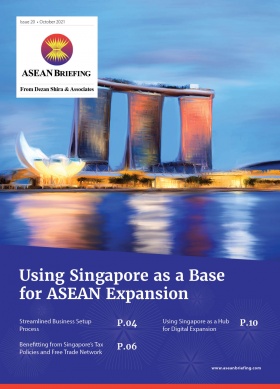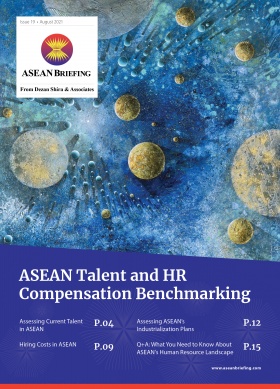Vietnam to Increase Production of Russia’s Sputnik V Vaccine
Vietnam and Russia have agreed to expand the production of the Sputnik V vaccine in Vietnam.
Although Vietnam already manufactures the Sputnik V vaccine, this latest deal will increase current production rates as well as produce the Sputnik Light vaccine (the vaccine that only requires a single injection instead of the usual two-dose regimen).
The agreement was signed during a visit by Vietnamese President Nguyen Xuan Phuc’s visit to Russia this week between the Russian Direct Investment Fund (RDIF), Russia’s Binnopharm Group, Vietnam’s T&T Group, and the operator of the first Vietnamese-Russian industrial park, Deep C Russia. The RDIF will provide comprehensive support for technology transfer and quality checks and to ensure the Vietnamese-produced vaccines meet international standards.
An initial investment of around US$60 to US$70 million will enable the technical implementation of the project to begin in early 2022 before full-fledged production starts in early 2023. The facility is expected to produce some 40 million doses of the two-component vaccine per year.On September 24, 2021, one of Vietnam’s leading pharmaceutical companies, VABIOTECH, successfully produced its first batch of Sputnik V vaccines. The test batch was also sent to the Gamaleya Center, the Russian institute where they are developed, to ensure it met quality standards.
The company expects to produce 5 million doses per month before increasing to 100 million doses per year going forward.
Vietnam and Russia aim to boost two-way trade
Vietnam and Russia aim to increase two-way trade by 15 times from the current US$5 billion with diplomatic relations reaching 70 years in 2021.
The modest trade value is set to increase as more businesses take advantage of the Vietnam- Eurasian Economic Union (EAEU) free trade zone (FTA). The EAEU includes Armenia, Belarus, Kazakhstan, Kyrgyzstan, and Russia and has a combined population of some 187 million people and US$5 trillion in GDP. Vietnam was the first ASEAN member to enter an agreement with the EAEU with Singapore being the second.
Vietnamese duties on EAEU products will be reduced to one percent from 10 percent by 2025, while the EAEU’s average will also reduce to two percent from 9.7 percent by the same year.
Moreover, Vietnam’s participation in the Regional Comprehensive Economic Partnership (RCEP) through its association with ASEAN can provide opportunities for Russian goods and services to over 2 billion consumers in Asia.
Oil and gas still dominate trade between the two countries and Russian energy giants Rosneft and Gazprom engaged in various projects along Vietnam’s continental shelf.
About Us
ASEAN Briefing is produced by Dezan Shira & Associates. The firm assists foreign investors throughout Asia and maintains offices throughout ASEAN, including in Singapore, Hanoi, Ho Chi Minh City, and Da Nang in Vietnam, Munich, and Esen in Germany, Boston, and Salt Lake City in the United States, Milan, Conegliano, and Udine in Italy, in addition to Jakarta, and Batam in Indonesia. We also have partner firms in Malaysia, Bangladesh, the Philippines, and Thailand as well as our practices in China and India. Please contact us at asia@dezshira.com or visit our website at www.dezshira.com.
- Previous Article Singapore Issues New Supply Chain Initiative to Help SMEs
- Next Article Cambodia Extends Deadline for Foreign Employee Quota Application







